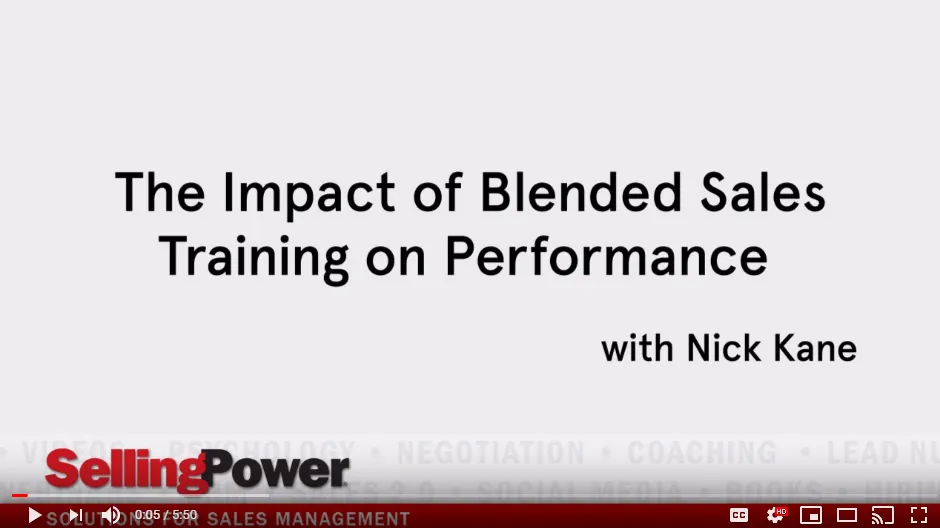5 Things You Should Do After Every Sales Call

Sales calls are a big part of your job as a sales rep. As we’ve said many times, the telephone—at 140 years old—is still your best tool for advancing deals, even in this age of gadgets. But whether you’ve just gotten off an OK call or you’ve brought your A game and can almost feel the deal drawing near, the work’s not over just because you’ve pressed the red phone icon on your mobile or put the office phone back in its cradle. While your ear’s still warm from the receiver, there are important steps you should take—right away; before you do anything else—to get the best ROI on your phone time.
Top-performing sales professionals are in the habit of taking certain steps right after their calls in order to accelerate the sales process and increase conversion rates. Below are the five ways you can post-call your way to success like the pros.
Be the Phone Call Coroner
Number 1 on the list of post-call duties is to snap on the mental rubber gloves and swiftly conduct a post mortem. Take a few minutes to write down and answer the following questions immediately after a call:
- Did I achieve my objective?
- What was successful?
- What was not so successful?
- What information did I gather?
- What evidence do I have that this is still a viable sales opportunity?
- Did I advance the sale to the next stage?
- What will my next move be?
- Who else needs to be involved in the process?
- What do I need to do to bump the sale to the next stage?
- When am I next going to speak with or see the customer?
- What’s my objective for the next meeting?
Feeling Their Pain Points
Getting to know your customer means getting to know their pain points. Number 2 on the list of post-call must-dos is to sort and group the customer’s needs, and then plan out how the goods and services you’re peddling will solutionize those needs.
Rescue Mission
Number 3: If you know from the call that your customer is about to walk off a cliff and fall straight into the jaws of a poor choice, brainstorm ideas and concentrate in order to ferret out insights that you can use to lure the prospect back from the cliff edge on your next call. While you’re in the welcome silence of the post call, architect a plan that will be good for both the customer and you. Be sure you prioritize your points in order of importance so that you have a script to go by as you present your solutions when you’ve got the prospect on the line again.
Number 4: Brain Dump
Capture the data in your head while it’s fresh. In a day, even in an hour, or whenever your next middle-age moment occurs (or young-thing moment), you could have trouble remembering what transpired on the call. Write down all the details of the conversation—anything you remember—along with any insights you have, thoughts about the customer/customer’s needs, and your analysis of their situation. Feeling blank-minded? Don’t worry. Just by virtue of taking the time to do this activity, insights and ideas you didn’t even know you had will come to you.
To make things even easier for your future self, put your notes directly into your CRM so that they’re easily accessible if you’re unexpectedly faced with a call from the customer. The more prepared you are for your next call, the better, so it’s great to have notes from your past self letting your present self know what the heck happened on the horn with so and so.
Send a Follow-up Email
The fifth and final step is sending a follow-up email that summarizes the customer’s needs and lists the reasons why you’re the right person with the right solution for them. Include in the email a rehash of the points covered during your call, and express interest in being the individual to address those points with your solution. To move the sales process forward, list key next steps, and encourage a follow-up meeting and/or a free demo.
That’s it. Bing, bang, boom—you’re done. Will these five steps take some time? Of course, but not that much. And they’re an investment in your future time. To get really streamlined, you can even organize it so that you have forms for yourself to fill in with your ideas, thoughts, insights, and answers; for the follow-up, you can create a boilerplate email.
Ultimately, it’s good business—and very satisfying—to have a post-call plan and be deliberate about carrying it out. It will not only help analyze the call you just hung up from, but will make your next call even more dialed in.

- Account Planning (11)
- Awards (50)
- Client Testimonial (37)
- Personal Branding (19)
- Podcast (11)
- Research (68)
- Sales Career Development (85)
- Sales Coaching (154)
- Sales Consulting (133)
- Sales Culture (164)
- Sales Enablement (340)
- Sales Leadership (108)
- Sales Management (242)
- Sales Negotiation (16)
- Sales Prospecting (124)
- Sales Role-Playing (18)
- Sales Training (229)
- Selling Strategies (255)
- Soft Skills (67)
- Talent Management (92)
- Trusted Advisor (27)
- Virtual Selling (41)
- Webinar (10)





























